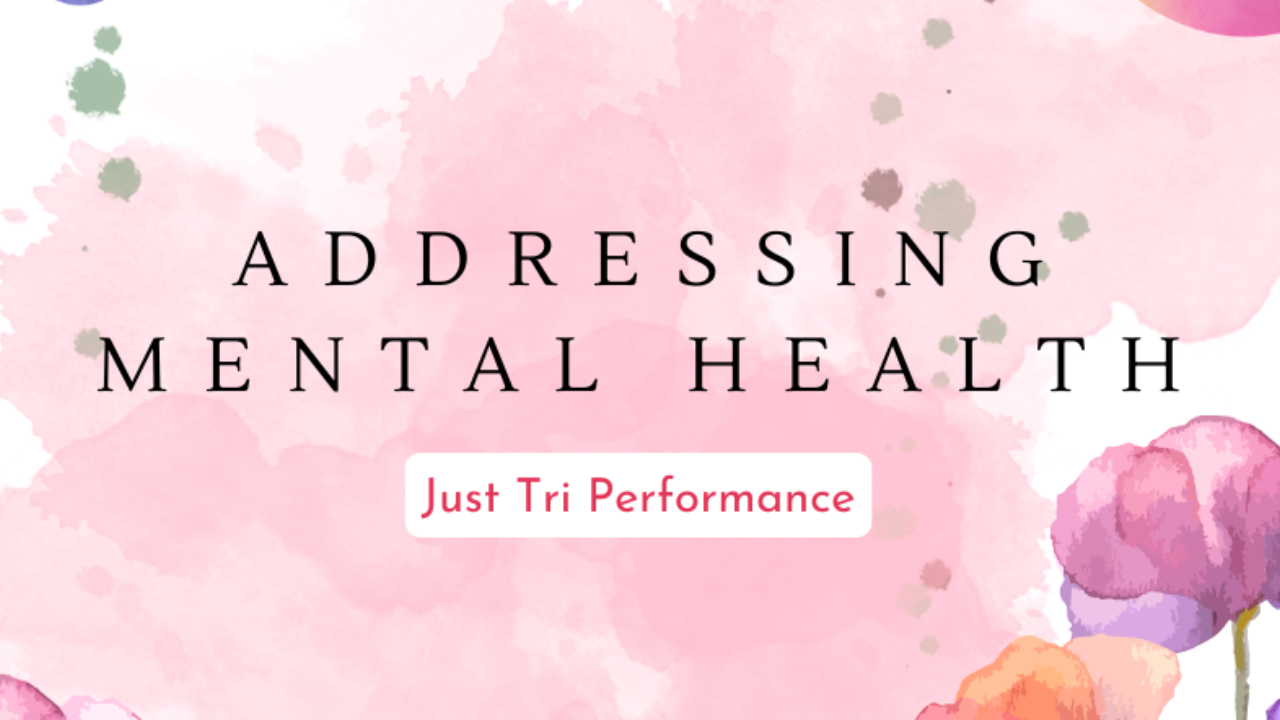
Addressing Mental Health in Female Athletes
May 09, 2023Hey Just Tri Tribe!
The month of May is Mental Health Awareness Month. There is no better time to bring attention to the importance of mental health for everyone, especially female athletes. Female athletes face unique challenges when it comes to mental health. Mental health can be influenced by a variety of factors, including the menstrual cycle. Understanding the impact of the menstrual cycle on mental health can help female athletes and their parents take proactive steps to support their mental well-being.
The menstrual cycle is a natural, yet complex and sometimes unpredictable process, and it can have a significant impact on a woman's body and brain. It typically lasts between 24-35 days. It consists of two main phases: the follicular phase and the luteal phase.
During the follicular phase, which lasts around 14 days, the body prepares for ovulation. The luteal phase, which lasts around 10-14 days, is characterized by the thickening of the uterus lining in preparation for a fertilized egg.
During the second half of the menstrual cycle (the luteal phase):
- Levels of estrogen and progesterone increase
- Levels of serotonin and dopamine decrease
These changes can lead to mood swings, anxiety, and depression in some women.
For female athletes, these changes can be especially challenging. When combined with the hormonal changes during the menstrual cycle, female athletes may be more susceptible to mood swings, irritability, and other mental health challenges. Physical activity can help improve mental health, but it can also exacerbate pre-existing mental health issues. It is essential that female athletes and their parents understand the impact of the menstrual cycle on mental health and take steps to support their mental well-being.
Here are some tips for female athletes and their parents to support their mental health during the menstrual cycle:
- Keep track of your menstrual cycle: Tracking your menstrual cycle can help you anticipate changes in mood and energy levels. You can use a menstrual tracking app or a calendar to keep track of your cycle.
- Be aware of your mood changes: During the luteal phase, it's common to experience mood swings and irritability. Be aware of these changes and try to practice self-care, such as getting enough sleep, eating a healthy diet, prioritizing breath work, and engaging in relaxing activities like yoga or meditation.
- Talk to your coach: If you're struggling with your mental health, it's important to talk to your coach. They can help you adjust your training schedule or provide support and resources.
- Seek professional help if needed: If you're experiencing significant mood changes or other mental health symptoms, it's essential to seek professional help. A therapist or mental health professional can provide guidance and support.
- Educate yourself: Educating yourself and your parents about the menstrual cycle and mental health can help you better understand your body and support your mental well-being. Resources like the National Institute of Mental Health and the American College of Obstetricians and Gynecologists can provide more information.
Remember, mental health is just as important as physical health, and it's essential to prioritize both. As a coach, I am committed to supporting the mental well-being of all my athletes. Let's work together to create a supportive and inclusive environment for female athletes to thrive.
Thank you for reading my blog! I hope you find this information helpful!
Have a great week, get some movement in, and as always, Just Tri!
Yours in Sport,
Lindsay
P.S. Help support and grow my business by following the Just Tri Performance social media pages on Instagram, TikTok, and subscribe on YouTube!!
Instagram: @just_tri365 | TikTok: @justtri_performance | YouTube
References:
- National Institute of Mental Health. Women and Mental Health. https://www.nimh.nih.gov/health/publications/women-and-mental-health/index.shtml
- American College of Obstetricians and Gynecologists. Women's Mental Health. https://www.acog.org/womens-health/faqs/womens-mental-health
- Kiesner, J., & Grieve, F. G. (2020). The menstrual cycle and sport performance: implications for physical and mental well-being. Journal of sport and health science, 9(6), 516-525.
Don't miss the Lady Business!
Stay connected - receive Women's Health news, motivation, and free resources delivered to your inbox.
We hate SPAM. We will never sell your information, for any reason.


